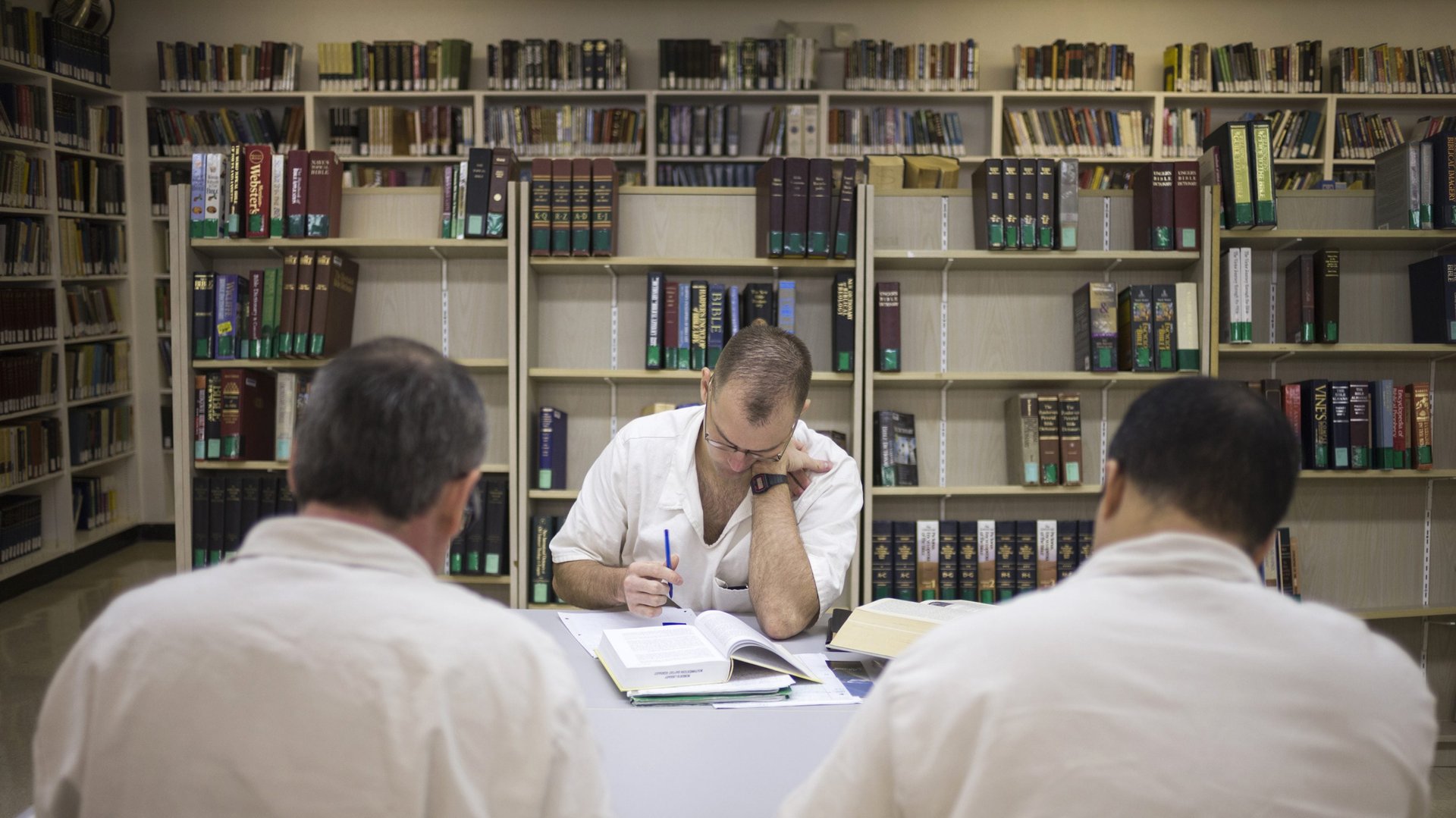Exactly what gets a book banned from prisons, in one US state’s spreadsheet
Last week, following a public outcry, New York governor Andrew Cuomo announced he would suspend a pilot program that would have severely restricted books in state prisons and left 50,000 inmates in veritable information darkness. The program would have prohibited inmates from receiving any packages that weren’t bought through approved vendors, which critics pointed out carried very few books on topics outside religion and puzzles.


Last week, following a public outcry, New York governor Andrew Cuomo announced he would suspend a pilot program that would have severely restricted books in state prisons and left 50,000 inmates in veritable information darkness. The program would have prohibited inmates from receiving any packages that weren’t bought through approved vendors, which critics pointed out carried very few books on topics outside religion and puzzles.
But while New York’s inmates were spared this program for now, prisoners across the country still contend with policies that ban or restrict access to books and other reading materials, for reasons ranging from reasonable to arbitrary to downright bizarre.
Prisoners in Alabama are banned from being in book clubs. In Michigan and Ohio, prisoners are barred from reading books that teach computer skills. In Michigan, the computer programming manual C++ For Dummies was kept out of a prison in 2012 because it posed a “threat to the order/security of institution.” The same reasoning applied to a book about Egyptian hieroglyphics.
On the list of tens of thousands of books Texas has banned in its prisons are The Essential Gore Vidal and Alice Walker’s The Color Purple. Last week, following reports that two New Jersey prisons had banned Michelle Alexander’s The New Jim Crow: Mass Incarceration in the Age of Colorblindness, the state quickly reversed the prohibition.
Books are important for everyone, but access to books is crucial for prisoners. Inmates have no or very limited access to the internet, so reading is a way to stay connected to society, if not to just pass time. Policies on book access for prisoners are widely divergent, and sometimes bafflingly inconsistent, across state, federal, and private prisons.
Mostly, the governing bodies keep the process and criteria for banning books frustratingly opaque. For some clues as to what goes into these decisions, however, a document from the state of Pennsylvania is particularly revealing. Unlike other states’ departments of corrections, Pennsylvania’s publishes a document that lists what books make it in, alongside the ones that are prohibited, sometimes with detailed reasons.
The list, a spreadsheet containing over 500 items, shows publications that were sent to prisoners and initially banned by the local prison, then were sent up the chain for further review after the prisoner appealed the decision. So it’s only a partial record of the total books banned and permitted across the state.
Still, taken as a whole, the spreadsheet paints a dystopian picture of bureaucrats and mailroom inspectors poring over hobbyist books and magazines, looking for clearly defined nipples and tips on reading body language. But it also gives a window into the subjective attempts on the part of prison management to decode pages of fine print on what Pennsylvania prisoners can read.
The result is that a how-to on drawing nude figures and a book of fairies illustrated as pin-up girls have been banned, but an essay collection called Hot Cougar Sex, erotica called House of Dark Delights, and pop-science book Female Ejaculation all were permitted, presumably because they are narrative-based. A book called How to Sue Everyone: Ready-to-Use Legal Letters to Terrorize Friends & Family, by Andrew Harley, was also allowed into prison. So was The New Jim Crow, a book by a legal scholar who argues that mass incarceration of black Americans on drug offenses has undermined many gains of the civil rights movement.
“The Department of Corrections publication review policy is designed to allow inmates to have access to the widest possible array of publications,” writes Amy Worden, a press secretary for the Pennsylvania DOC, by email. “Publications are denied only as necessary to ensure the safety, security and rehabilitation requirements inherent in the operation of a prison.”
Here’s a sample from the list:
Denied
Book: Body Language 101: The Ultimate Guide to Knowing When People Are Lying, How They Are Feeling, What They Are Thinking, and More
Book: Hollywood in Kodachrome
Book: The Millionaire Prisoner: Special TCB Edition
Book: The Nude Female Figure (A Visual Reference for the Artist)
Book: Fairy Song: A Gallery of Fairies, Sprites, and Nymphs
Publication: GQ: vol. 87, issue 3
Allowed
Book: Robert’s Rules of Order: 11th Edition
Publication: Interview: vol. XLVII
Book: The Complete Book of Voodoo
Book: The Complete Book of Spells, Ceremonies & Magic
Publication: Inked: issue 88
Book: Dungeons and Dragons Gaming Books